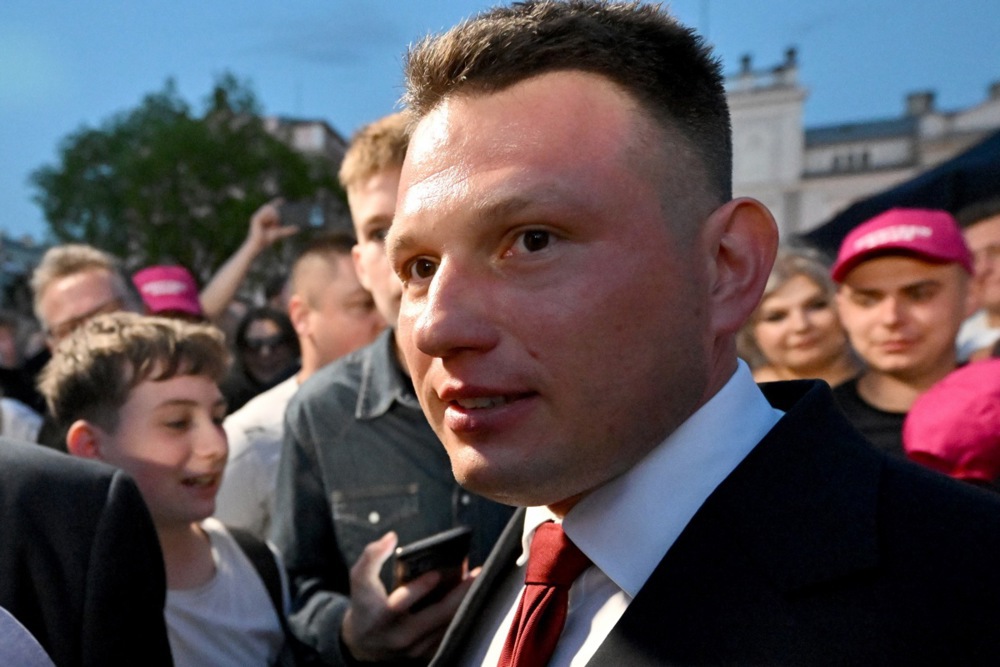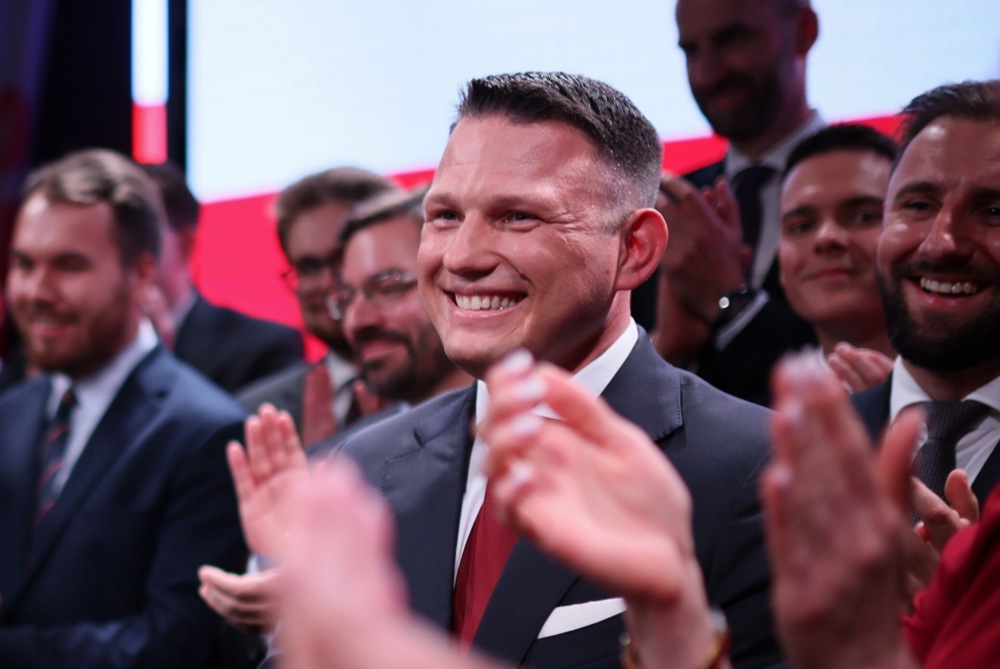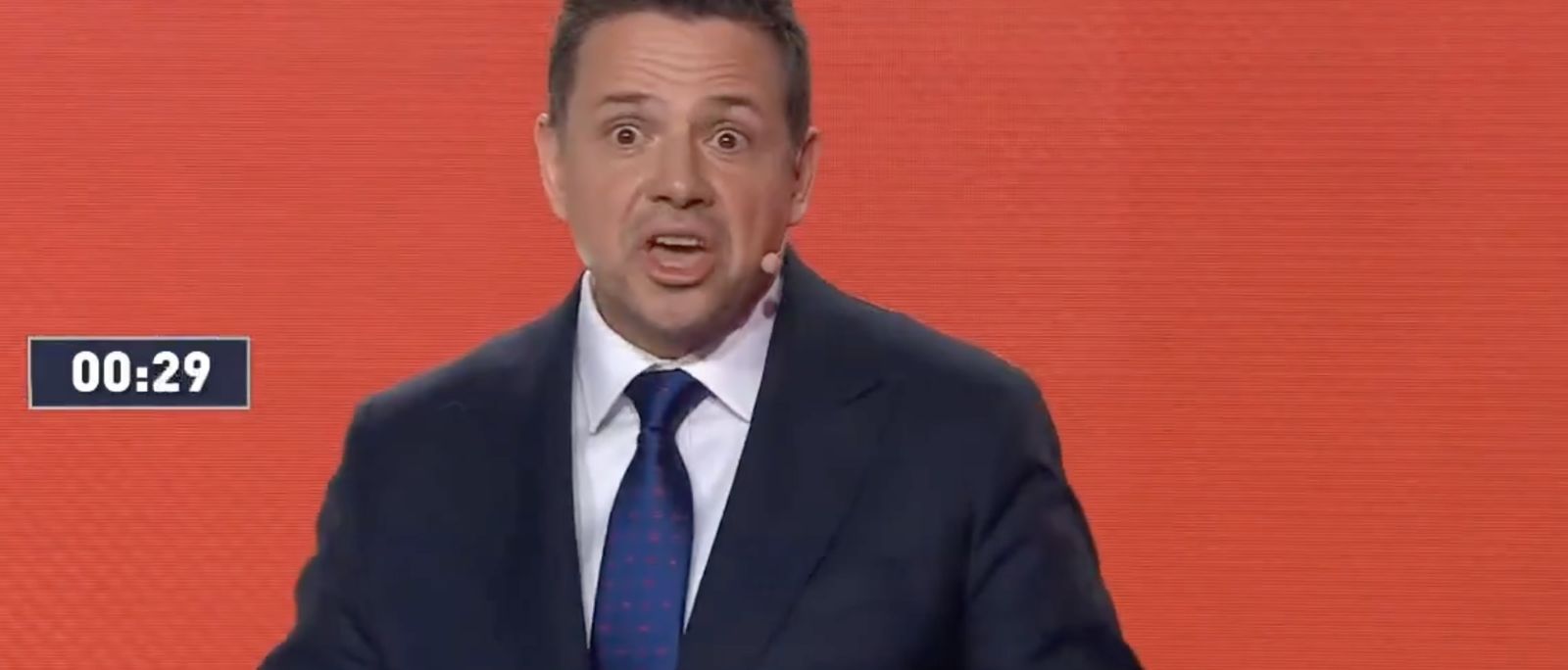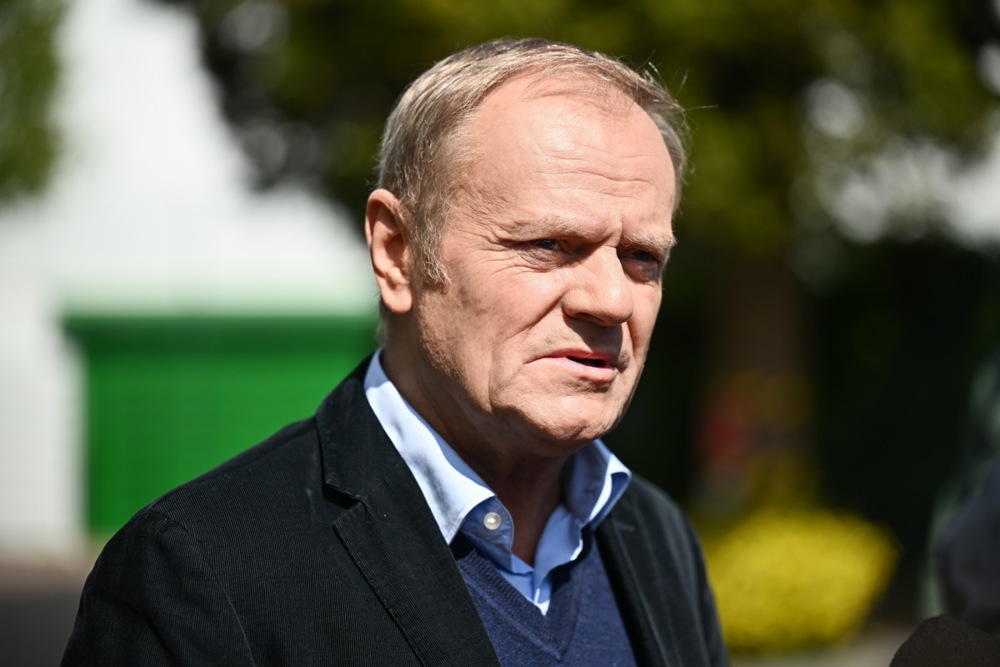Sławomir Mentzen, who came third in the first round of Poland’s presidential election, invited both candidates in the second round to appear on his YouTube channel and sign a policy declaration.
Mentzen, from the right-wing Confederation party, gained 15 per cent of the vote.
He asked the two candidates in the second round to promise if elected they would ensure there would be no more erosion of Polish sovereignty, tax rises, or restrictions of personal freedoms.
Karol Nawrocki, the Conservative (PiS) who polled a close second in the first round with 29.5 per cent, responded immediately saying he would meet Mentzen on his YouTube channel and would sign the policy declaration.
“I accept the invitation and am ready to sign these proposals. See you soon!”, Nawrocki replied online.
A more nuanced response came from Rafał Trzaskowski, the candidate of Donald Tusk’s centre-left Civic Coalition (KO) who topped the 18 May first round with 31 per cent.
Trzaskowski said he was also willing to meet Mentzen, and would meet some but not all his demands.
On election night, Mentzen said each of his voters would make their own decision about what how to vote in the second round, but he was ready to help them make that choice.
He then held a press conference May 20 extending the invitation to both the candidates who made it into the run off, and said he would be asking them “to sign a declaration that aligns with the expectations of my voters”.
He also explained his reasoning behind the move.
“There is no better way to win over my voters than to appear on my social media platforms. My supporters don’t watch your TV channels, they don’t buy into your media propaganda. They use social media and follow my content. If you want their votes, you’ll need to convince them directly.” Mentzen said.
In a declaration with eight points, the pledge says that if elected, as president the candidate would refuse to sign any legislation that increased existing taxes or introduced new fiscal burdens.
The document also includes pledges to reject any legislation that restricts the freedom of speech or access to firearms, limits the use of cash, or leads to the adoption of the Euro.
Regarding Ukraine, Mentzen asks candidates to promise they would not ratify Ukrainian accession to NATO or agree for Polish soldiers to be sent to Ukraine.
Finally, Mentzen asks the candidates to pledge they would refuse to allow any transfer of powers to the EU, or to ratify any EU treaties weakening Poland’s role in the EU, such as a proposal to do away with the members’ right of veto.
The maverick nationalist right-wing candidate Grzegorz Braun, who came fourth in the first round with six per cent, has also issued a set of demands for the two remaining candidates to approve.
Like Mentzen, he demanded no Polish soldiers should be sent to Ukraine, but added there should also be no military equipment sent to Ukraine.
He also rejected what he called the “Ukraineization of Poland”, demanding a restriction on the numbers and rights of Ukrainians in Poland.
Braun also demanded that each of the candidates reject both the EU Green Deal and the EU Migration Pact, and that they pledge to stop both legal and illegal migration into Poland.
He also demanded the candidates reject “any medical experiments on Poles such as vaccinations, genetic selection and euthanasia”.
Finally, Braun demanded the candidates should support the exhumation of Jewish victims of the Jedwabne massacre.
Historians have said the massacre was committed by Poles during the Second World War, in cooperation with German military police.
The point is highly controversial in Poland, and Braun and other nationalists argue exhumations would prove the 340 Jews killed in July 1941 were murdered by the Germans.
Referencing his 2023 stunt in the Polish parliament when he put out a menorah with a fire extinguisher, Braun has demanded the candidates would not hold any celebration of Hanukkah in the presidential palace, and would reject any Jewish property restitution or compensation demands.
Trzaskowski has not responded to Braun’s demands and is unlikely to do so.
However, Nawrocki said that he would reply to Braun’s points, and stressed he was against compulsory vaccinations in situations that did not constitute a national medical emergency.
Writing on X, Braun made clear that his mind is already on the 2027 parliamentary election where he hopes “to bring to Parliament a block of MPs who are truly of the Right”.
Until early this year Braun, was part of the Confederation party, even though as an MEP he was not admitted into any of the European Parliament’s right-wing factions because of his alleged antisemitism.
When he decided to stand against the Confederation party in this year’s presidential election, Braun’s “Confederation of the Polish Crown” faction left the Confederation party.





